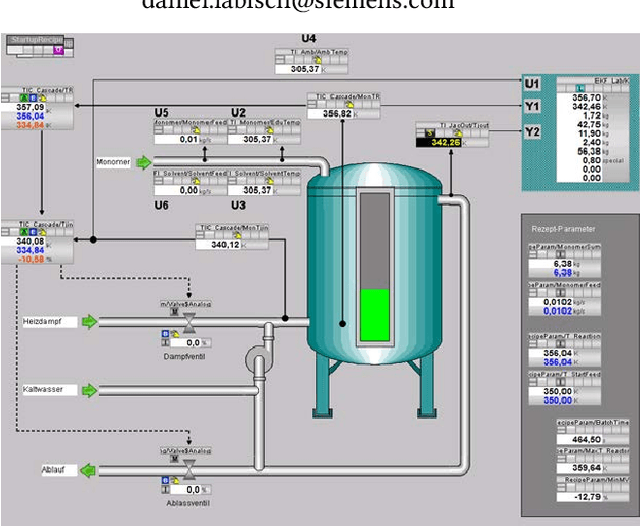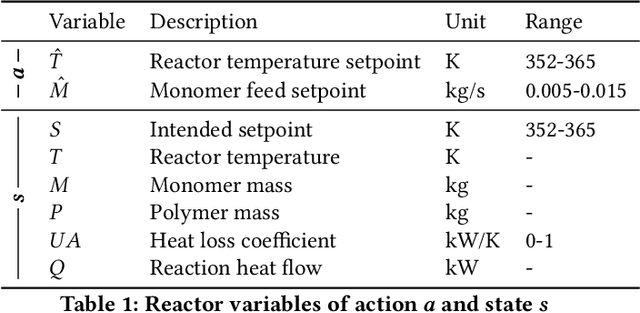Trustworthy AI for Process Automation on a Chylla-Haase Polymerization Reactor
Paper and Code
Aug 30, 2021



In this paper, genetic programming reinforcement learning (GPRL) is utilized to generate human-interpretable control policies for a Chylla-Haase polymerization reactor. Such continuously stirred tank reactors (CSTRs) with jacket cooling are widely used in the chemical industry, in the production of fine chemicals, pigments, polymers, and medical products. Despite appearing rather simple, controlling CSTRs in real-world applications is quite a challenging problem to tackle. GPRL utilizes already existing data from the reactor and generates fully automatically a set of optimized simplistic control strategies, so-called policies, the domain expert can choose from. Note that these policies are white-box models of low complexity, which makes them easy to validate and implement in the target control system, e.g., SIMATIC PCS 7. However, despite its low complexity the automatically-generated policy yields a high performance in terms of reactor temperature control deviation, which we empirically evaluate on the original reactor template.
 Add to Chrome
Add to Chrome Add to Firefox
Add to Firefox Add to Edge
Add to Edge